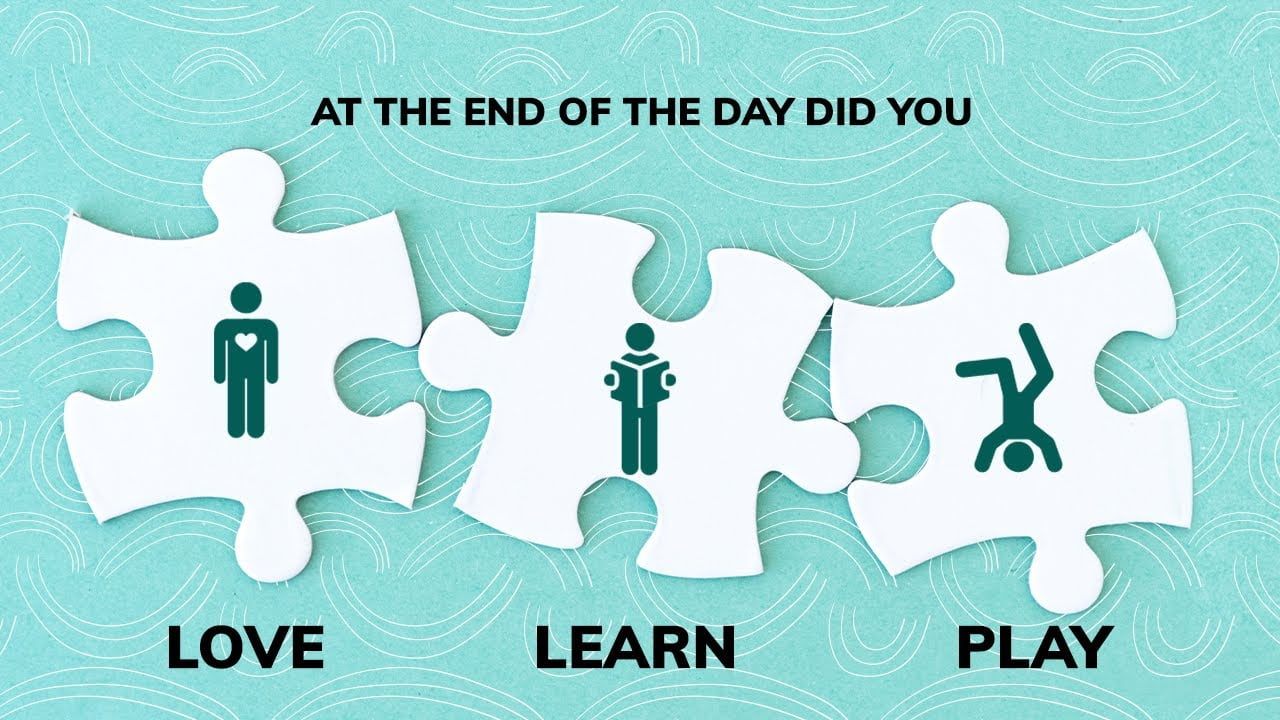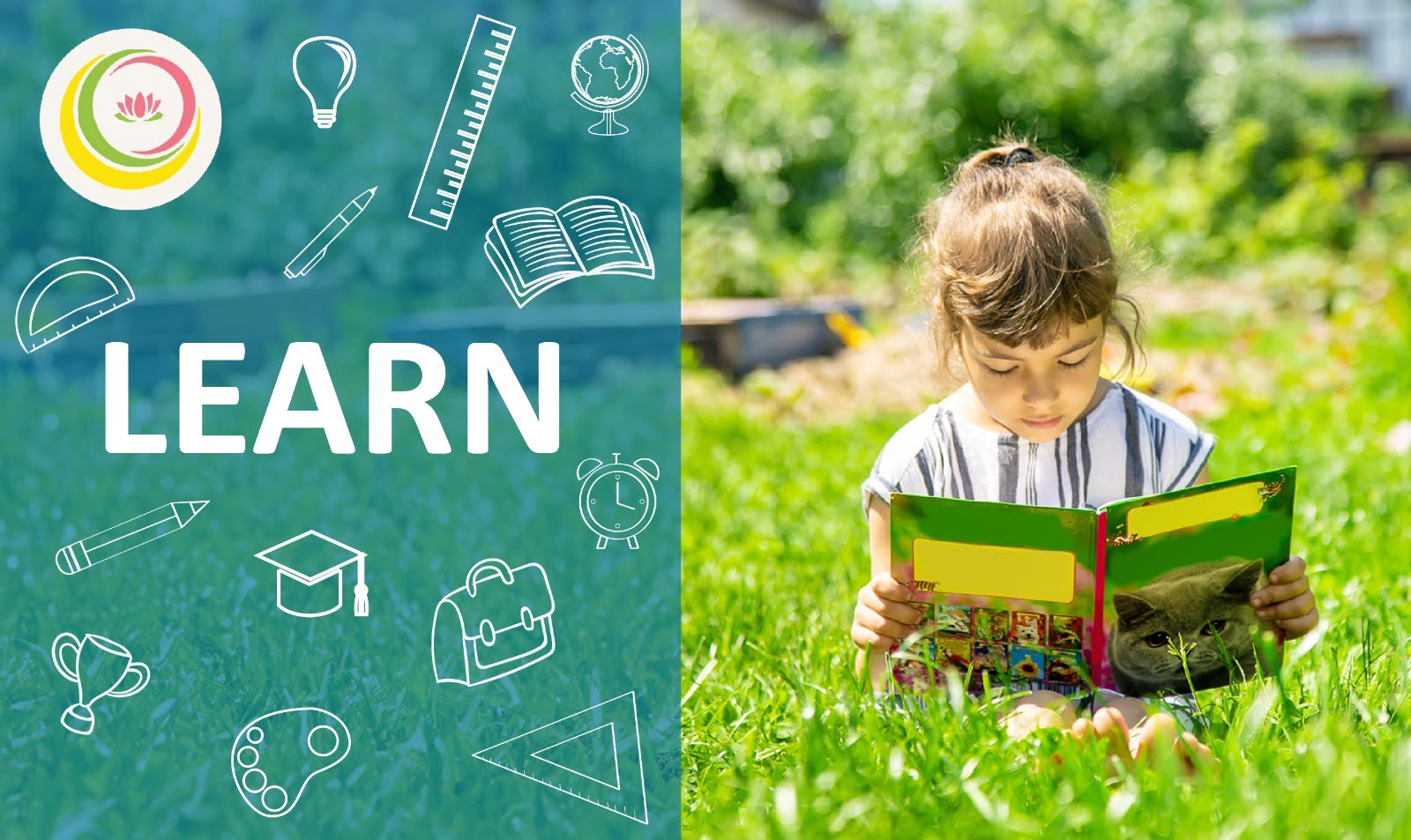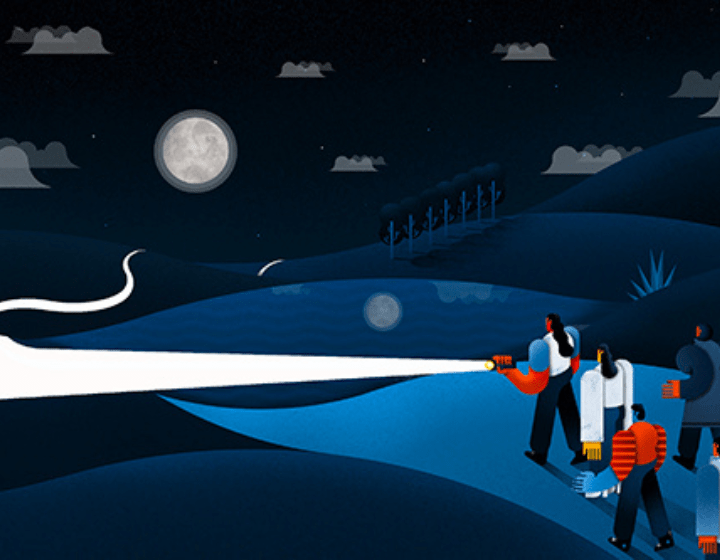Watch Videos on Learn

Our Anthem

Learn | UEF
Listen On-The-Go
Learning about Learning - a deep dive
“It is not knowledge but the act of learning, not possession but the act of getting there, which grants the greatest enjoyment.” – Carl Friedrich Gauss
“Learning never exhausts the mind,” Leonardo da Vinci
Learning is integral to what it means to be alive. We can distinguish that which is living from that which is not living based on whether the object has the ability to learn. A stone, a grain of sand, even a star, or any of the inanimate objects cannot learn. Following the second law of thermodynamics, these objects will move irreversibly towards ever greater disorder/entropy.
Life, on the other hand, fights against entropy and disorder. The great physicist Erwin Schrödinger described this property of life as “negative entropy,” which is the ability to turn disorder into order.
Like loving and playing, learning is truly infinite. This is because reality has an onion-like structure. Each answer gives rise to new questions and provides opportunities for new learning. Since we can never extinguish our curiosity, and if we remain curious, it leads us to a pathway to our connection to infinity!

“The more I know, the more I realize I know nothing.” Socrates, the father of Western philosophy, repeatedly maintained that he knew nothing. He was comparing what he knew in comparison to what he did not know.
Just as there is near-infinite knowledge for us to learn from our books and internet databases, there is an equally infinite amount of knowledge about the universe that nobody has, at least at this time. Well, over 95% of the physical world is constituted by a substance we know nothing about—dark matter.
But knowledge about the outside world is just one form of knowledge. Sages throughout history, Socrates among them, stressed the importance of “the examined life,” the kind of learning that has to do with knowing oneself and using this knowledge to constantly improve oneself.
As Confucius explained, “We tend to ‘learn’ some things but ‘study’ others. For instance, a child learns to walk but an entomologist studies the behavior of ants. We learn something practical; we study something theoretical. In learning the focus is on the learner; in studying the focus is on the subject. In learning something new, a man improves himself. He either acquires a new skill or becomes more proficient in an old one. In studying, a man acquires new knowledge but this new knowledge need not make any difference to him as a practical man.”

In our day-to-day lives, learning manifests differently for humans, depending on the developmental stage of their lives:
Early Childhood
During early childhood, learning often occurs through exploration, play, and social interactions. Young children learn through their senses, motor skills, imitating others, and interactions with caregivers, peers, and their environment. They develop foundational skills such as language acquisition, fine and gross motor skills, basic problem-solving abilities, and social skills.
Childhood
In middle childhood, learning becomes more formalized and structured as children engage in formal education. They acquire literacy and numeracy skills, learn about various subjects such as science, history, and social studies, and develop cognitive abilities such as critical thinking and logical reasoning. Social skills and emotional intelligence also continue to develop during this stage.
Adolescence During adolescence, learning involves increased cognitive complexity and abstract thinking. Adolescents are exposed to more complex academic subjects, engage in critical thinking, and develop their own identities and values. They also learn about social and emotional aspects such as relationships, self-awareness, and decision-making.
Adulthood Learning in adulthood can occur through various channels such as formal education, work experiences, personal interests, and life experiences. Adults may pursue higher education, professional development, and lifelong learning opportunities to acquire new skills, knowledge, and competencies related to their careers or personal interests. Adults also continue to learn and adapt based on their life experiences, challenges, and changing roles and responsibilities. Adulthood implies a transition to higher stages of growth and development. We grow towards a more independent self, increasing our awareness, and in greater control of our behaviors.
I took a class on Adult Development with Robert Kegan, a psychologist at Harvard University and an expert on this subject. He believed that an essential function of learning for humans is the creation of meaning and purpose. He went so far as to state that humans don’t create meaning as a secondary function, we are meaning-making machines. He argued that there are five distinct ways in which we humans go about creating meaning, and we move between these ways throughout our lives.
The first two are mainly done in childhood through what he calls impulsive and instrumental minds. The remaining three ways of creating meaning are done by adults. Of these, the first way is via a ‘socialized mind’ in which how we create meaning is largely derived from the society and institutions in which we find ourselves. The other two ways involve us breaking out of our socialized minds and coming to create meaning wholly by ourselves. However, according to Keegan, most of us — about 65% of the general population never make it past Stage 3. We lack an independent sense of self because so much of what we think, believe, and feel is dependent on how we think others experience us.
Ultimately, learning can also be seen as an expression of love. With true learning, we may bring about humility, gratitude, and appreciation of the beauty of diversity and interconnectedness of life and acquire the wisdom to pass this same perspective to others. Continuous learning makes life meaningful and is anathema to the ego—which is one of the biggest impediments to human flourishing.
The Ease of Learning, and Importance of Unlearning We learn from people, books, and experiences. Books cover all three — as every book reflects the author’s learnings and experiences. In the words of Rene Descartes, “The reading of all good books is like a conversation with the finest minds of past centuries.” Some of the most successful people in the world such as Oprah, Mark Cuban, Bill Gates, and Warren Buffet credit their dedication to reading, and their learning, to their continued success. Buffett once said, “Read 500 pages like this every week. That’s how knowledge builds up, like compound interest. Go to bed smarter than when you woke up.”
The lyrics to the Beatle’s song, “The Inner Light,” is a reminder that learning can take place anywhere, even from home.
“Without going out of your door You can know all things on Earth Without looking out of your window You could know the ways of Heaven The farther one travels The less one knows The less one really knows Arrive without traveling See all without looking Do all without doing”
The lyrics from this song were actually taken (almost verbatim) from chapter 47 of the Daodejing, an ancient Chinese text from the religious tradition of Daoism. The text is known for being cryptic, with its abundance of paradoxical phrases. But we need not delve into the deeper meanings of the above lines to see how they apply to our situation today.
In older times, people learned in communal settings, telling stories around the fireplace, sharing observations of the natural world with one another, and having philosophical debates. But most importantly was the ability to learn, and pass on new skills and techniques to others.
We evolved in close-knit tribal communities. The key to our success was our ability to work together and problem-solve. A driving urge behind working together was to mutually learn from each other and play at the same time while learning. In order to do this, we needed to be able to communicate efficiently and with as little error or misunderstanding as possible. This necessity meant that we needed to be good at picking up subtle signals and non-verbal cues from our fellow humans. In other words, we learned not only about ourselves but also about others and our relation to others. Learning is not an isolated or individual enterprise. It is through learning and sharing with others that we have evolved and accumulated knowledge, and yet we want to learn more. Learning is the urge in each of us through which human evolution carries its march forward!
The story of the elephant and nine blind men is a popular parable and is a powerful metaphor for cooperative learning. According to the story, nine blind men were asked to describe an elephant, each touching a different part of the animal’s body.
The first blind man touched the elephant’s leg and said, “An elephant is like a tree trunk.”
The second man touched the elephant’s tail and said, “An elephant is like a rope.”
The third man touched the elephant’s trunk and said, “An elephant is like a snake.”
The fourth man touched the elephant’s ear and said, “An elephant is like a fan.”
The fifth man touched the elephant’s side and said, “An elephant is like a wall.”
The sixth man touched the elephant’s tusk and said, “An elephant is like a spear.”
The seventh man touched the elephant’s belly and said, “An elephant is like a boulder.”
The eighth man touched the elephant’s tusk and said, “An elephant is like a pipe.”
And the ninth man touched the elephant’s tusk and said, “An elephant is like a plow.”
Each of the blind men had a different perception of the elephant based on the part they touched. None of them were wrong, but none of them had a complete understanding of the animal as a whole. If they all shared their learnings, they will all have the full perception of the elephant. The story is often used to illustrate the idea that our perceptions of reality are limited by our experiences and that we should be open to the perspectives of others to gain a complete understanding of the world around us.
Most importantly, true learning involves constantly unlearning what we have learned before. As Isac Asimov said, “Your assumptions are your windows on the world. Scrub them off every once in a while, or the light won’t come in,”
Our perceptions of the world do not ‘accurately’ reflect what is true “out there.” Instead, our perspectives are construction of that outside world. For example, we see a table that is solid, but we now know from science that the table has 99.5% empty space. Similarly, take color perception. Color is not a property of light that exists outside and is independent of ourselves. Instead, color is an active construction of our minds. There have been many tests that have proven this to us. One of the simpler ones is that under slightly different conditions the same wavelength of light can be perceived as different colors.
T.H White captures much of what we are trying to express with these thoughts:
“You may grow old and trembling in your anatomies, you may lie awake at night listening to the disorder of your veins, you may miss your only love, you may see the world about you devastated by evil lunatics, or know your honor trampled in the sewers of baser minds. There is only one thing for it then—to learn. Learn why the world wags and what wags it. That is the only thing which the mind can never exhaust, never alienate, never be tortured by, never fear or distrust, and never dream of regretting.”
In an Aldous Huxley novel, one of his characters remarks, “I wanted to change the world. But I have found that the only thing one can be sure of changing is oneself.” Just as the physical health of the whole of us depends on the health of each of us, so too does the social health of the world depend on how good each of us is at reforming ourselves. Living with a Love, Learn, Play approach in daily life impacts who we are, rather than what we think we know.
As a follow-up to this article, we recommended reading:
Map for Quotes on Learn

Share Your Valuable Thoughts with Us
Suggested Further Readings
External References
In the context of leadership, separation manifests as leadership by domination—those trying to achieve power
Successful lifelong learners nurture their intellectual curiosities. Helen Keller, Einstein, Confucius, da Vinci, Richard Feynman,
The Book of Joy by the Dalai Lama, Desmond Tutu, and Douglas Abrams focuses on
The concept of a “meaningful life” is a topic that has been debated for centuries.
Share your Views with your Friends
Reach Us
- Akhil Gupta 14 Story Street, Suite 500, Cambridge, MA 02138
- social@uef.org
- +91 99203 97381
Other Links
Copyright © 2025. ❤️Universal Enlightenment & Flourishing









